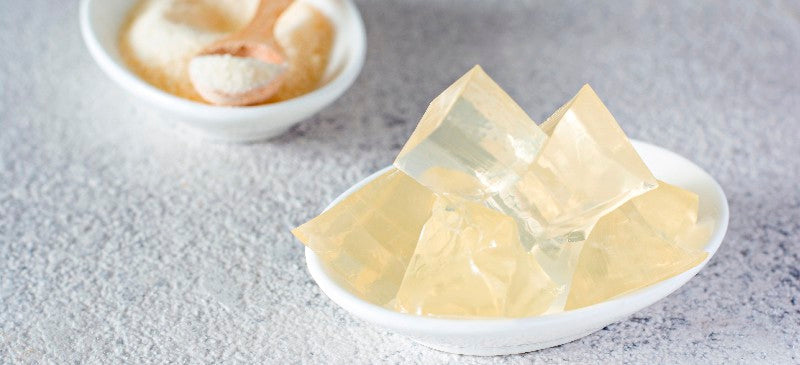Gelatin has been used in cosmetics, skincare, and supplements for decades—most often as a thickener, stabilizer, or capsule material. But for Muslim consumers, it raises an important question:
👉 Is gelatin halal, and what alternatives should you look for?
The truth is, gelatin can be either halal or haram depending on its source. Here’s the breakdown.
What Is Gelatin?
Gelatin is a protein derived from collagen, usually obtained by boiling animal skin, bones, or connective tissue.
In beauty, it’s used for:
-
Skincare & haircare: As a film-former, giving products texture or shine.
-
Makeup: In mascaras or capsule-based products.
-
Supplements: In softgel capsules and collagen powders.
Why Most Gelatin Is Not Halal
-
Source: The majority of gelatin used globally comes from pigs (porcine gelatin).
-
❌ Always haram.
-
-
Non-halal animal gelatin: Even if bovine-derived, it’s haram if animals were not slaughtered according to Islamic law.
-
Processing risks: Cross-contamination can occur if facilities handle both halal and haram sources.
Halal-Friendly Alternatives to Gelatin
Thankfully, modern beauty science offers many replacements that perform just as well:
-
Halal-Certified Bovine Gelatin 🐄
-
Derived from cows slaughtered in compliance with Islamic law.
-
Rare in cosmetics but sometimes used in supplements.
-
-
Marine Collagen / Fish Gelatin 🐟
-
Derived from permissible fish species.
-
Halal when processed in compliance with halal standards.
-
-
Plant-Based Alternatives 🌱
-
Agar-agar (from seaweed)
-
Carrageenan (from red algae)
-
Pectin (from fruit)
-
Modified starches & cellulose
-
All vegan, halal-friendly, and widely used in skincare and capsule shells.
-
-
Biotech Solutions ⚗️
-
Lab-created gelling agents mimicking gelatin’s texture without animals.
-
Sustainable, vegan, and halal-compliant.
-
At Purelab Care, we exclusively use plant-based or biotech alternatives—never animal-derived gelatin—ensuring every product is halal-friendly, vegan, and cruelty-free.
✅ Gelatin & Halal: Frequently Asked Questions
1. Is gelatin always haram?
No, but most gelatin in the beauty industry comes from pigs and is haram. Only halal-certified bovine or fish gelatin is permissible.
2. What’s the difference between gelatin and collagen?
Gelatin is made by boiling collagen. Both can be animal-derived, but halal-friendly versions exist if sourced correctly.
3. Are capsules in supplements always haram?
Not always. Some are made from halal bovine gelatin or plant-based cellulose. Always check for halal certification.
4. What’s the best vegan alternative to gelatin?
Agar-agar, carrageenan, and pectin are the most common halal + vegan substitutes.
5. Does Purelab Care use gelatin?
No. We use only plant-based and biotech alternatives, guaranteeing halal compliance and luxury performance.
The Bottom Line
Gelatin is widely used in beauty, but its source determines whether it’s halal or haram.
-
❌ Pig-derived or non-halal animal gelatin = haram.
-
✅ Halal bovine, marine, or plant-based alternatives = permissible.
At Purelab Care, we go beyond compliance—choosing only halal, vegan-friendly alternatives that deliver science-backed performance without compromise.



